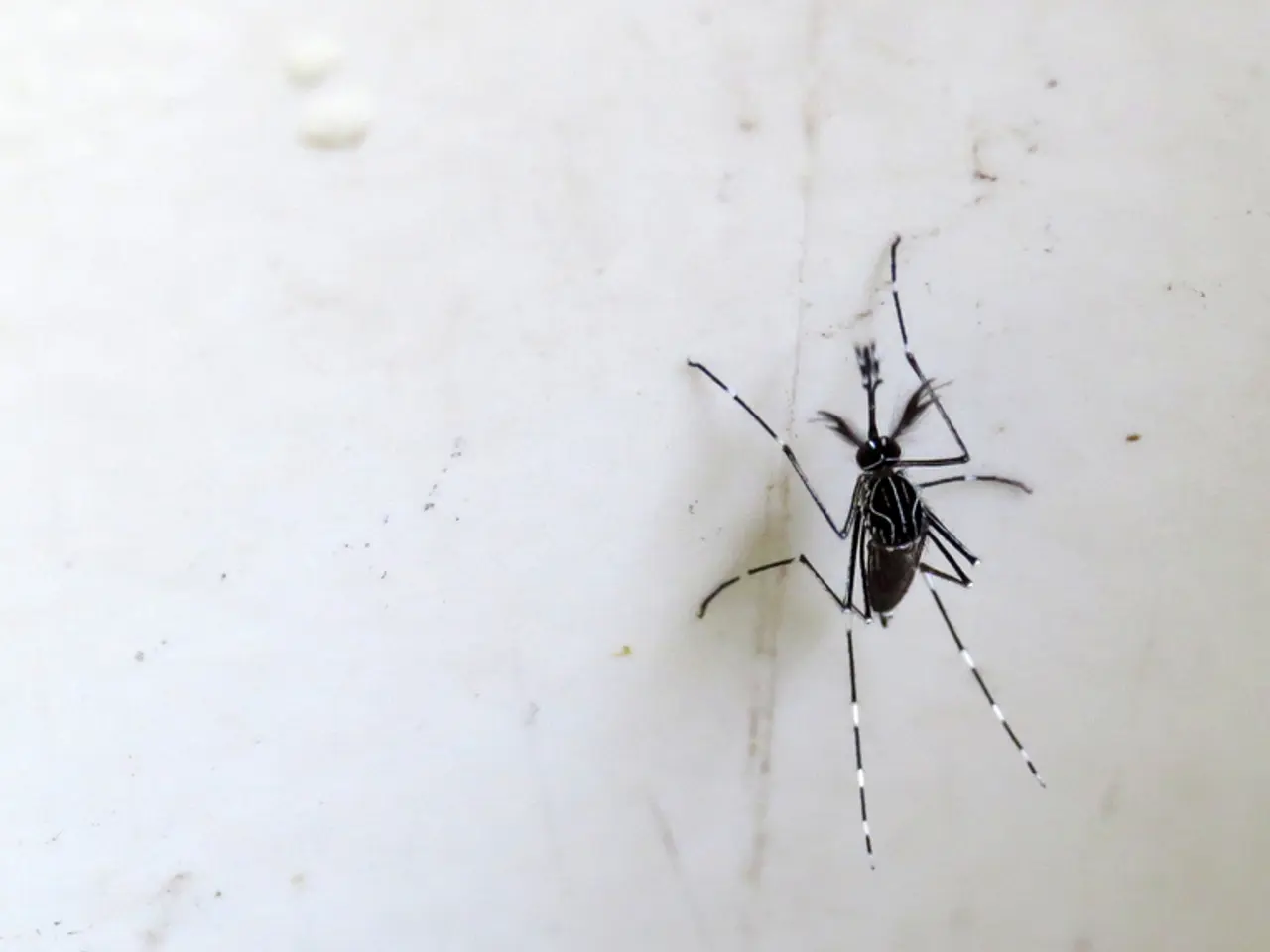Five residents of Halton have been diagnosed with West Nile virus.
In the heart of Halton, residents have been advised to take precautions against mosquitoes following the confirmation of five cases of West Nile virus, marking the first human cases for the region in 2025. Dr. Patrick Galange, the Associate Medical Officer of Health for Halton Region, has emphasised the importance of personal protection against these pesky insects.
Residents are urged to protect themselves and their families against mosquito bites until the fall frost. This includes covering up when going outside between dusk and dawn, and at any time in shady, wooded areas, with light-coloured, long-sleeved shirts and pants with tightly-woven fabric. Furthermore, using an approved insect repellent, such as one containing DEET or Icaridin, is highly recommended.
Halton Region Public Health has taken proactive measures to reduce the risk of West Nile virus. They employ educational and preventative programs such as larviciding, which targets mosquito larvae at their source, and encourage residents to remove mosquito breeding sites around their homes. This includes getting rid of all water-filled containers and objects where possible.
Changing the water in bird baths at least once per week is also advised to prevent mosquitoes from breeding. In addition, making sure your window and door screens are tight and without holes, cuts or other openings is essential for keeping mosquitoes at bay.
It's important to note that approximately 80% of individuals infected with West Nile virus will have no symptoms. However, some may develop symptoms such as fever, headache, body aches, joint pains, vomiting, diarrhea, or rash. In rare cases, about one in a hundred people infected may develop a severe illness affecting the central nervous system, which could present as encephalitis (inflammation of the brain) or meningitis (inflammation of the membranes that surround the brain and spinal cord).
For more information about personal protection and Halton Region's surveillance and control efforts, visit the West Nile Virus page on halton.ca. If you notice standing water on public property, call 311 to report it.
Halton Region Public Health is managing these cases of West Nile virus diligently. As always, the health and safety of the community is their top priority. Stay vigilant, stay informed, and stay protected.
Read also:
- Chiropractic Manipulations and their Impact on Pain Relief
- Researchers Unearth Remarkable Creature Capable of Parturition of Two Distinct Species
- Honoring Ayurveda Day 2024: Tapping into the Power of AYUSH for Worldwide Wellbeing
- casesof West Nile virus resulting in fatalities in Greece, with seven individuals confirmed to have succumbed to the disease




